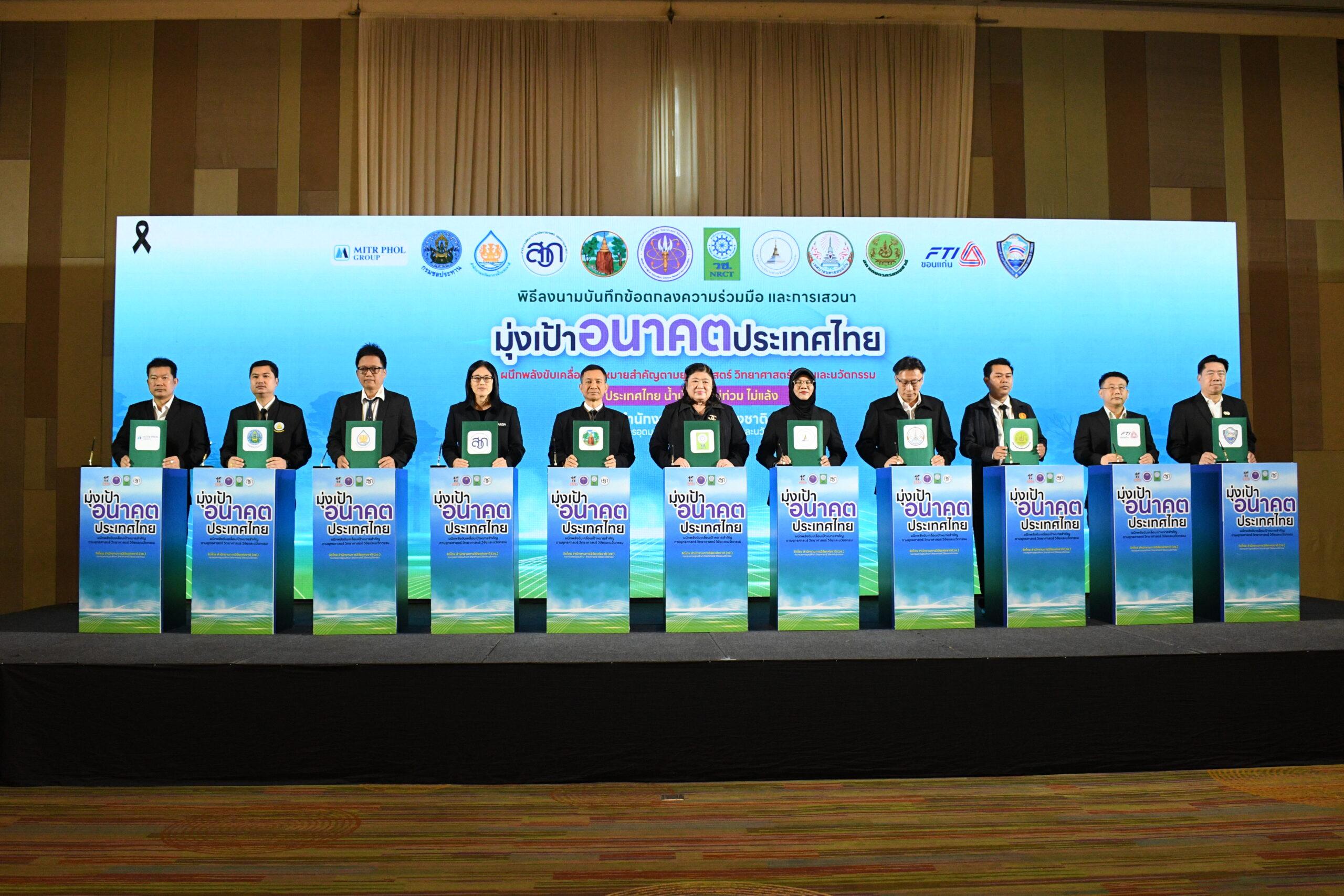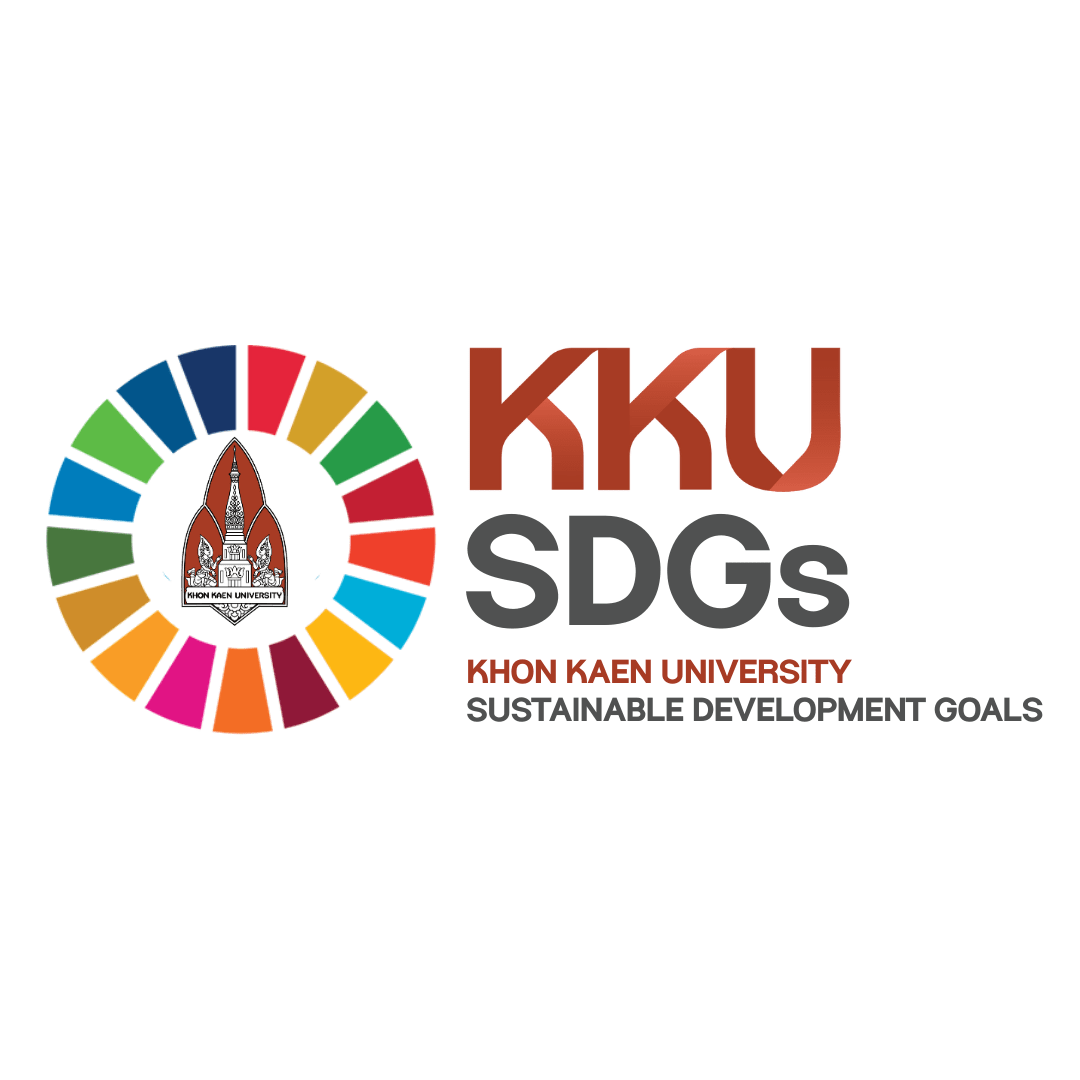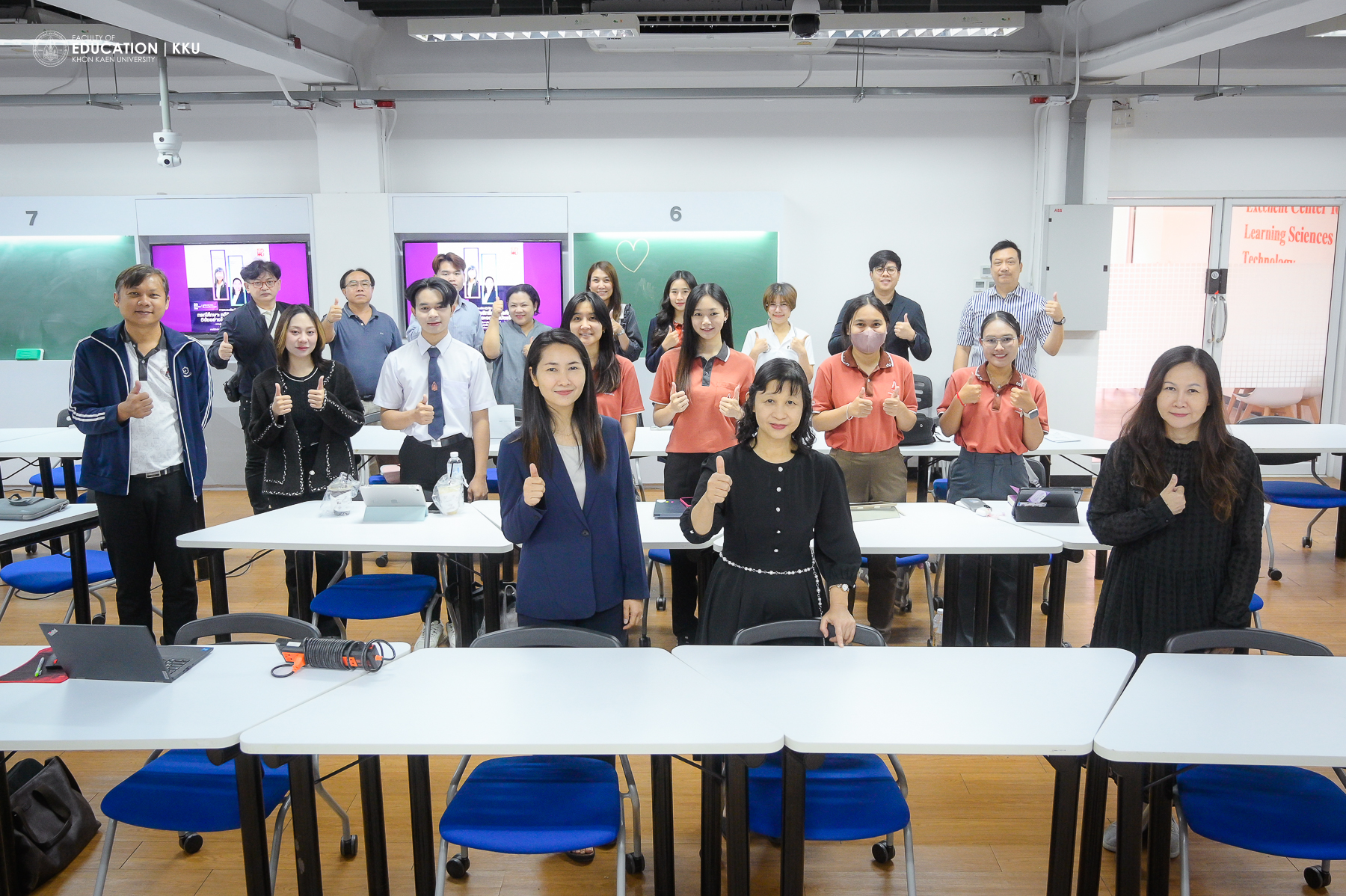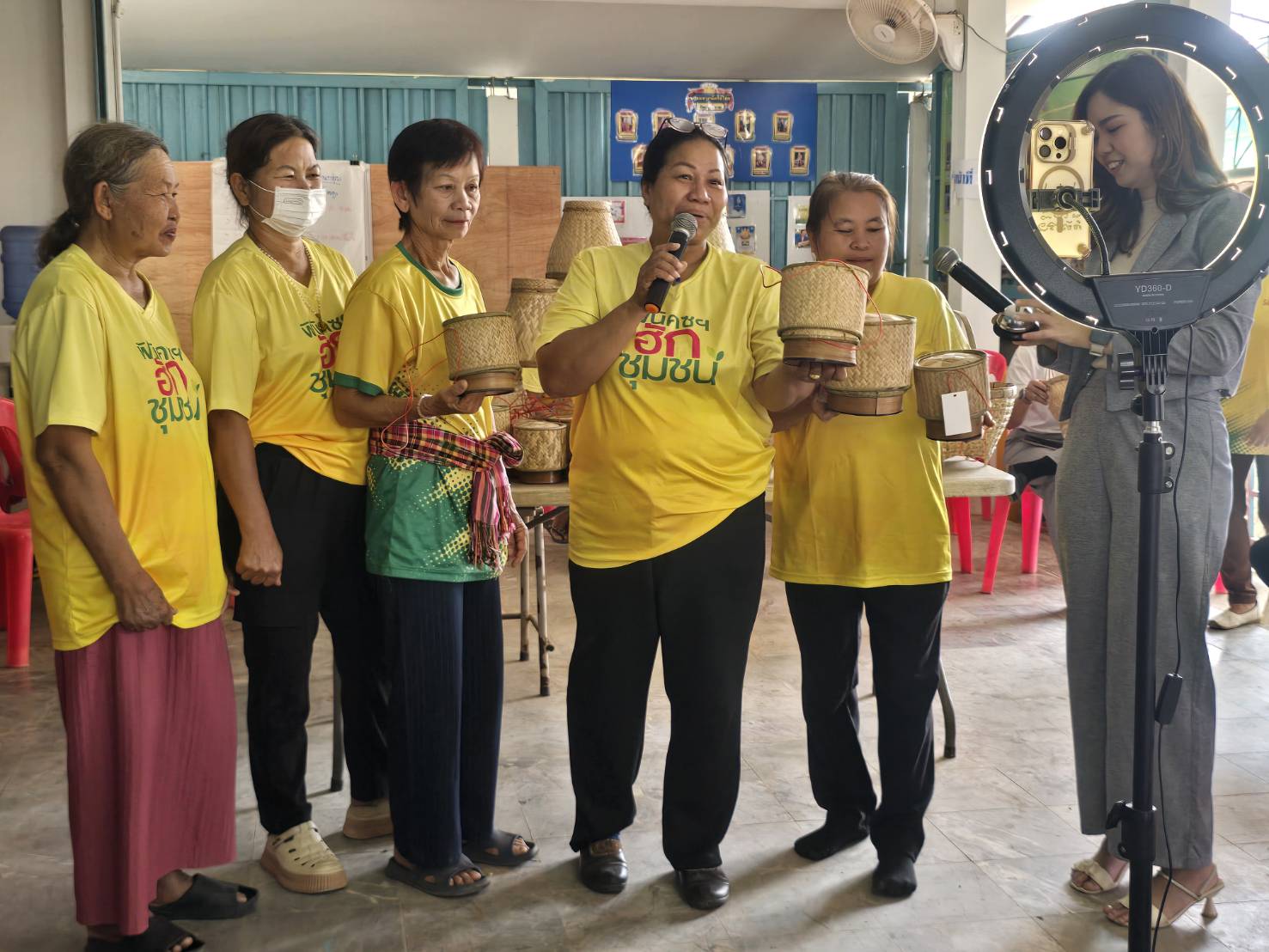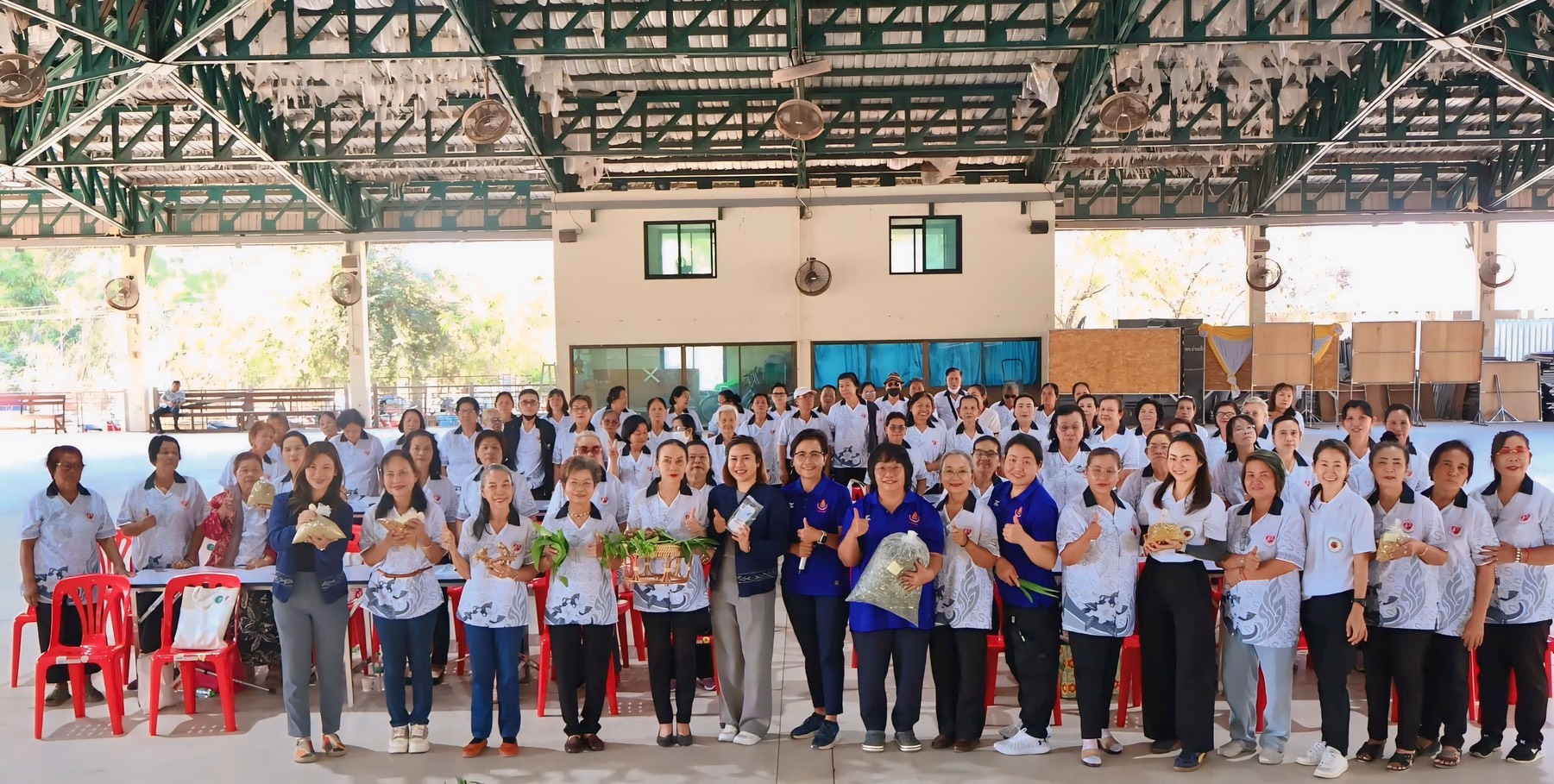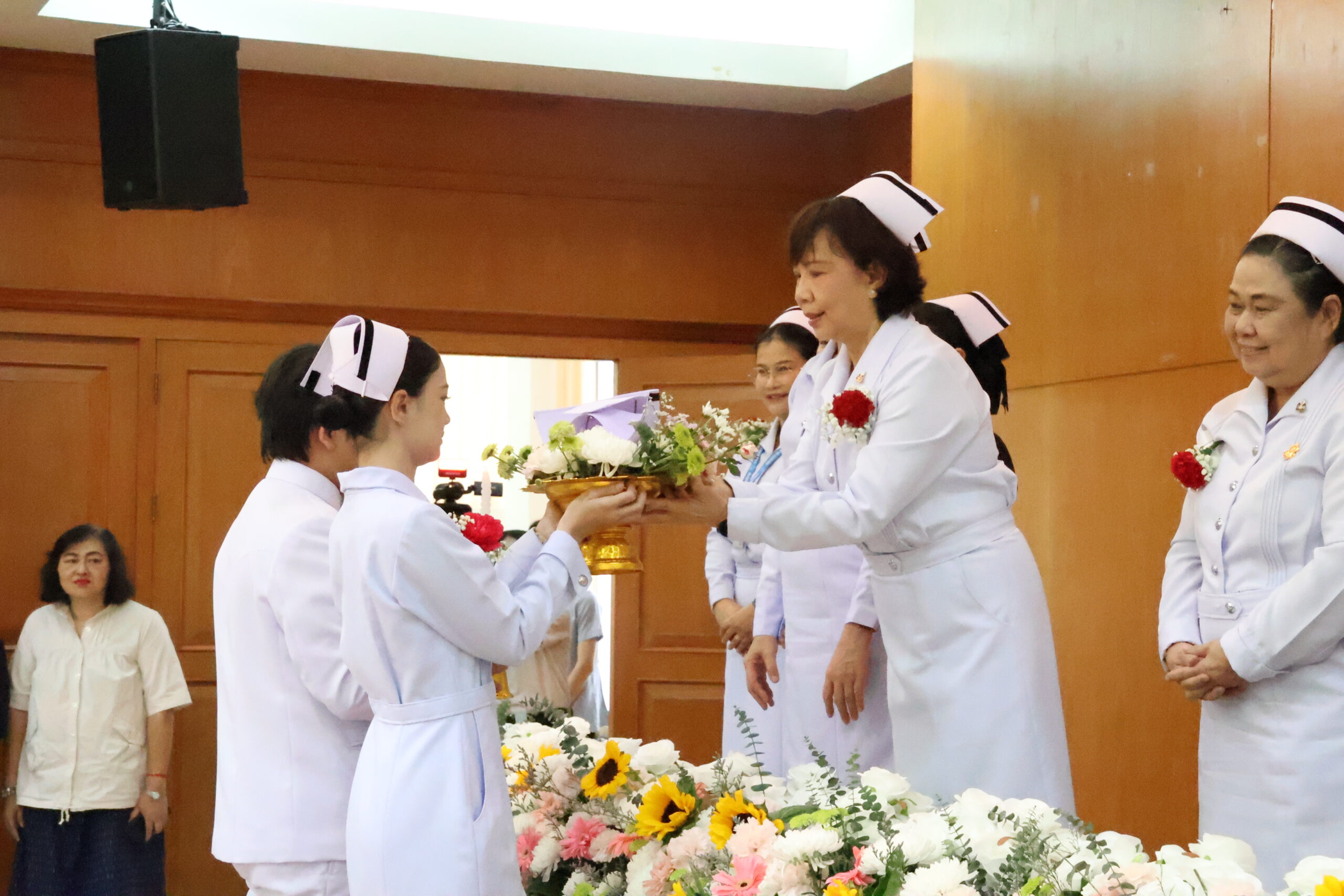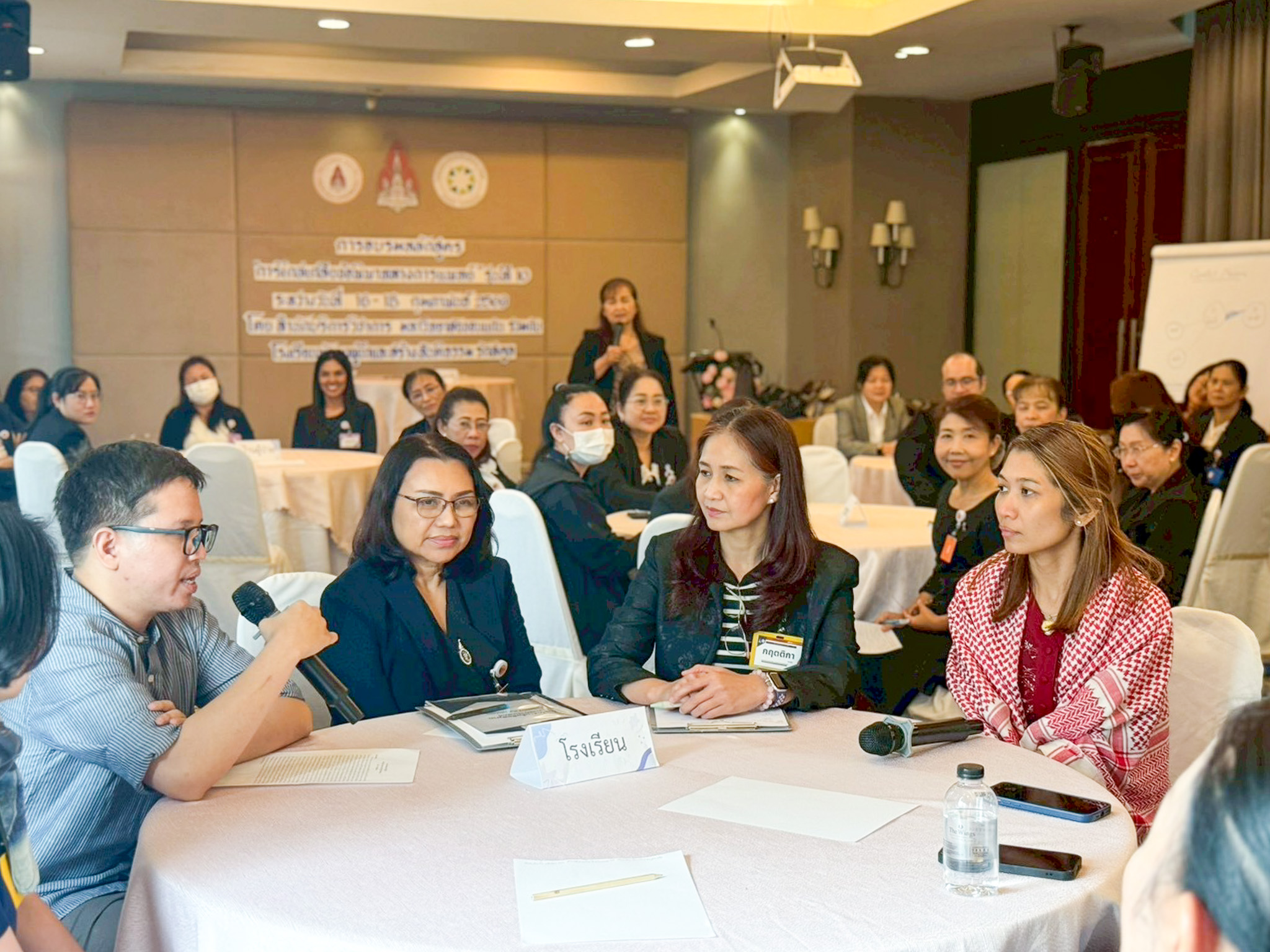On Wednesday, 19 November 2025, from 09:00 to 14:00 hrs, the National Research Council of Thailand (NRCT) hosted the activity, “Targeting Thailand’s Water Security Future,” which culminated in the signing of a Memorandum of Agreement (MoA) with partner network agencies.
The MoA aims to drive solutions for flood and drought issues in Khon Kaen and Chaiyaphum provinces by integrating readily applicable knowledge, technology, and innovation with the operational mechanisms of local agencies. The event, held at the Pullman Khon Kaen Raja Orchid Hotel, was attended by over 300 participants, including researchers, provincial representatives, Provincial Administration Organisation personnel, staff, and members of the public.
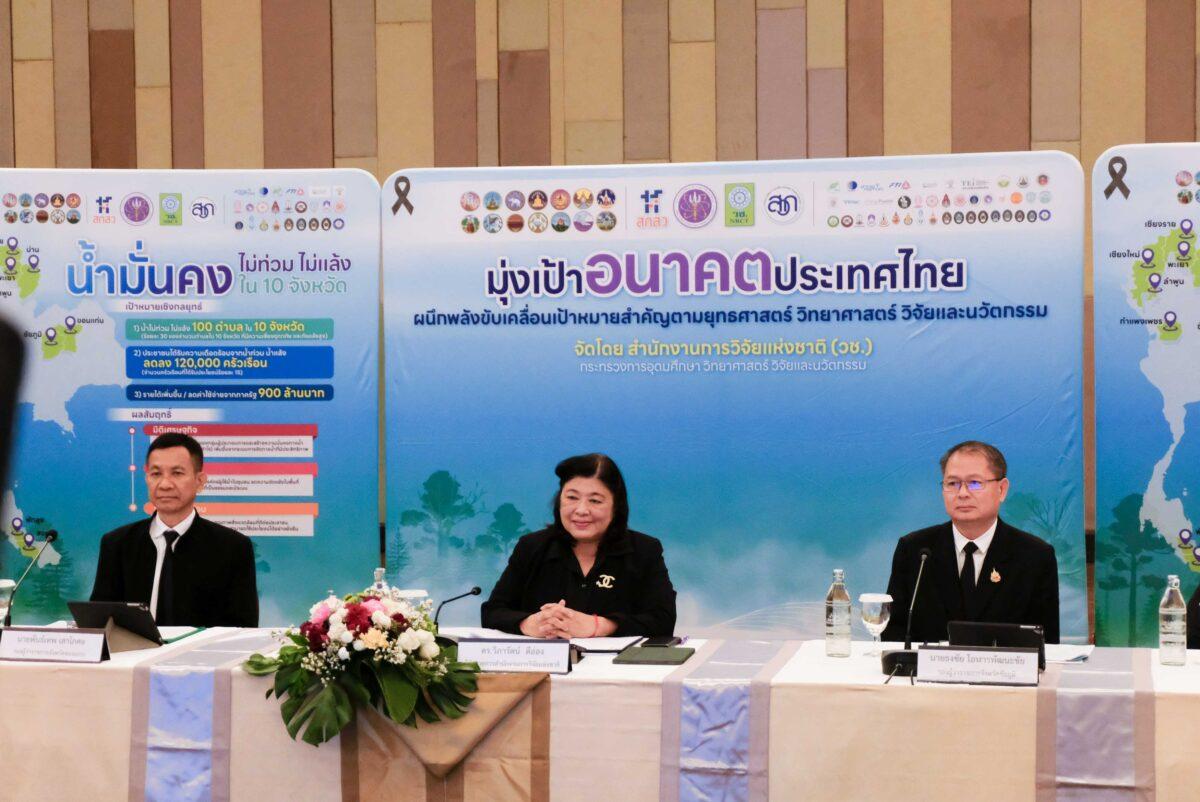
The NRCT organised this activity as part of its strategic objective under the Higher Education, Science, Research and Innovation (HERI) framework, focusing on “Achieving Water Security—No Floods, No Droughts—in 10 Provinces.” This strategy outlines three key goals: 1) achieving zero floods and droughts in 100 sub-districts across 10 provinces; 2) reducing hardship for 120,000 households affected by floods and droughts; and 3) reducing government expenditure by 900 million baht, while simultaneously increasing the income generated from agriculture and the economy for the local populace.
Dr. Wiparat De-ong is the Executive Director of the National Research Council of Thailand (NRCT) , stated, “The National Research Council of Thailand, under the Ministry of Higher Education, Science, Research and Innovation, has been tasked by the Policy Committee for Science, Research and Innovation Promotion (SRC) to drive and manage key objectives under the HERI strategy. This involves reinforcing and integrating readily available knowledge, technology, and innovation with the operational mechanisms of local agencies.”
“The NRCT is highly honoured to sign this Memorandum of Agreement with all partner network agencies. This signing marks a crucial first step in achieving Thailand’s future goal of water security—no floods, no droughts—through research and innovation,” the Director continued.
Dr. Wiparat added that the research teams possess innovative technology and practical knowledge ready for immediate application in the target areas. This will facilitate coordinated efforts with the provinces and partner agencies, particularly in critical water management issues such as ensuring sufficient water for all uses, mitigating drought to enable farmers to sustain their occupations, and reducing flood risks while developing effective early warning systems to enhance community safety.
Mr. Panthap Saokosol, Deputy Governor of Khon Kaen Province, commented, “While Khon Kaen is a Smart City, it still faces persistent flooding problems that have historically occurred regularly. We see this as an excellent opportunity for the NRCT to genuinely assist Khon Kaen in resolving these water issues, especially within the Khon Kaen Municipality and all affected road networks. Khon Kaen Province welcomes and offers its full cooperation in implementing this project.”
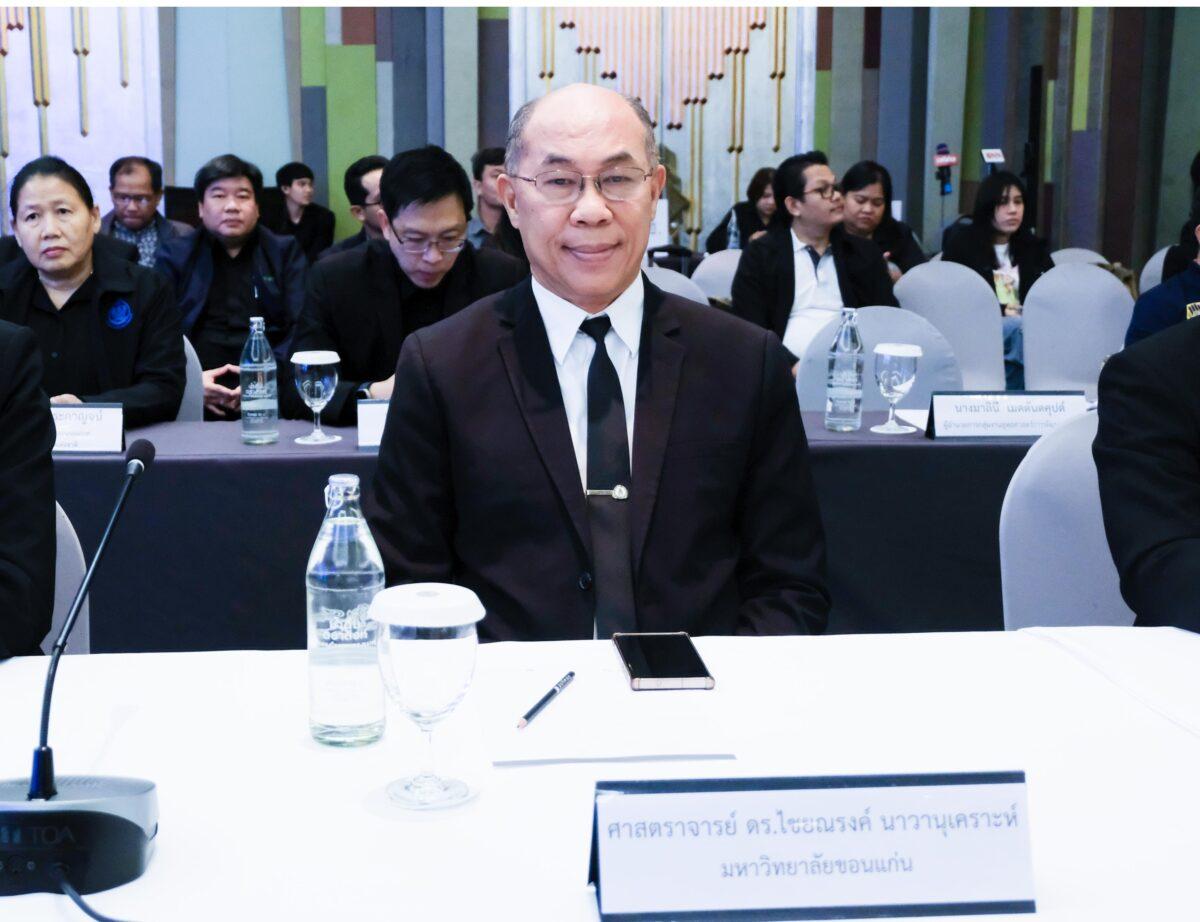
Professor Dr.Chainarong Navanukraw, Head of the Integrated Strategy Project for Drought Mitigation in the Northeast: ‘Khon Kaen Drought Model,’ from the Faculty of Agriculture and the Faculty of Engineering, Khon Kaen University (KKU), explained, “In 2025, Khon Kaen University is collaborating with provincial agencies, sub-district municipalities, and sub-district administration organisations across five districts and seven sub-districts facing drought challenges. We are implementing eight ready-to-use technologies, including the SPPS water pumping system, Tubtim Chumphae rice, water requirements for sugarcane and rubber, tree crop planting systems, brackish water fish/saline soil animal raising, post-harvest technology, and soil fertility enhancement.”
“By focusing on the specific problems and needs of each community, the project will benefit them by alleviating drought hardship and increasing the income of farming households through the application of science, research, and innovative knowledge,” Professor Chainarong affirmed.
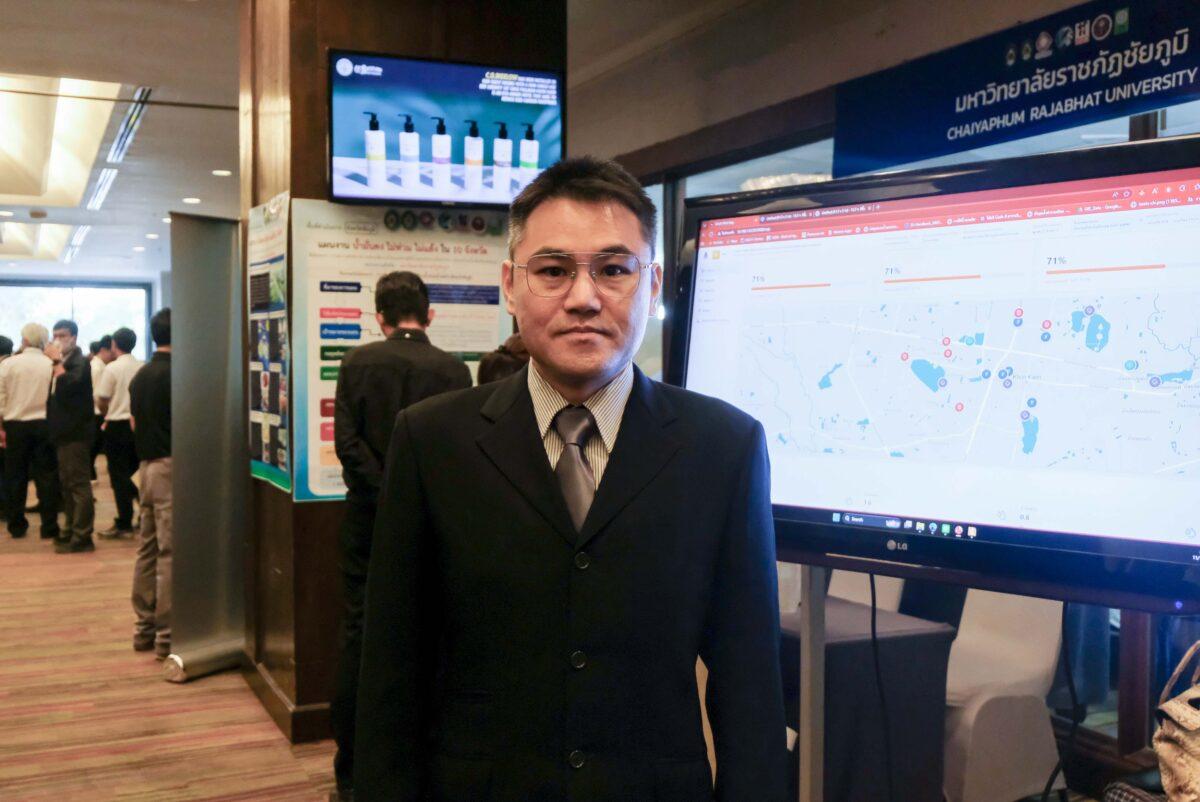
Assistant Professor Dr. Worapong Lohpaisankrit, a lecturer from the Faculty of Engineering, Khon Kaen University, and Head of the Khon Kaen Flood Warning and Prevention System Project, stated, “Effective collaboration with various municipalities is extremely important. When rain falls in the city, we need to temporarily store the water. Our system installs water level sensors and surveys the capacity of different areas to determine how much water each area can handle. This data is then used to create an efficient strategy for receiving, retaining, and releasing water.”
“Our primary target group is the municipalities. Our tools can calculate how much rainfall occurs in an area and how much should be stored versus how much should be drained,” Assistant Professor Worapong concluded.
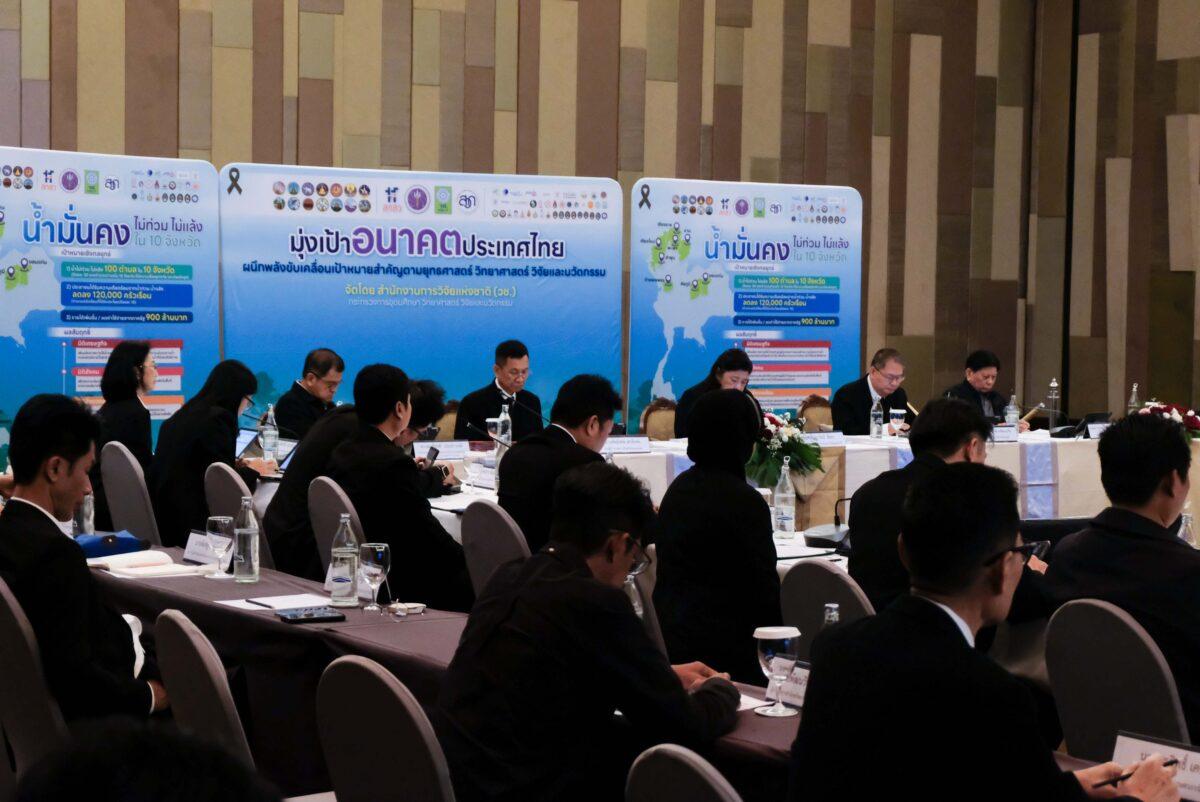
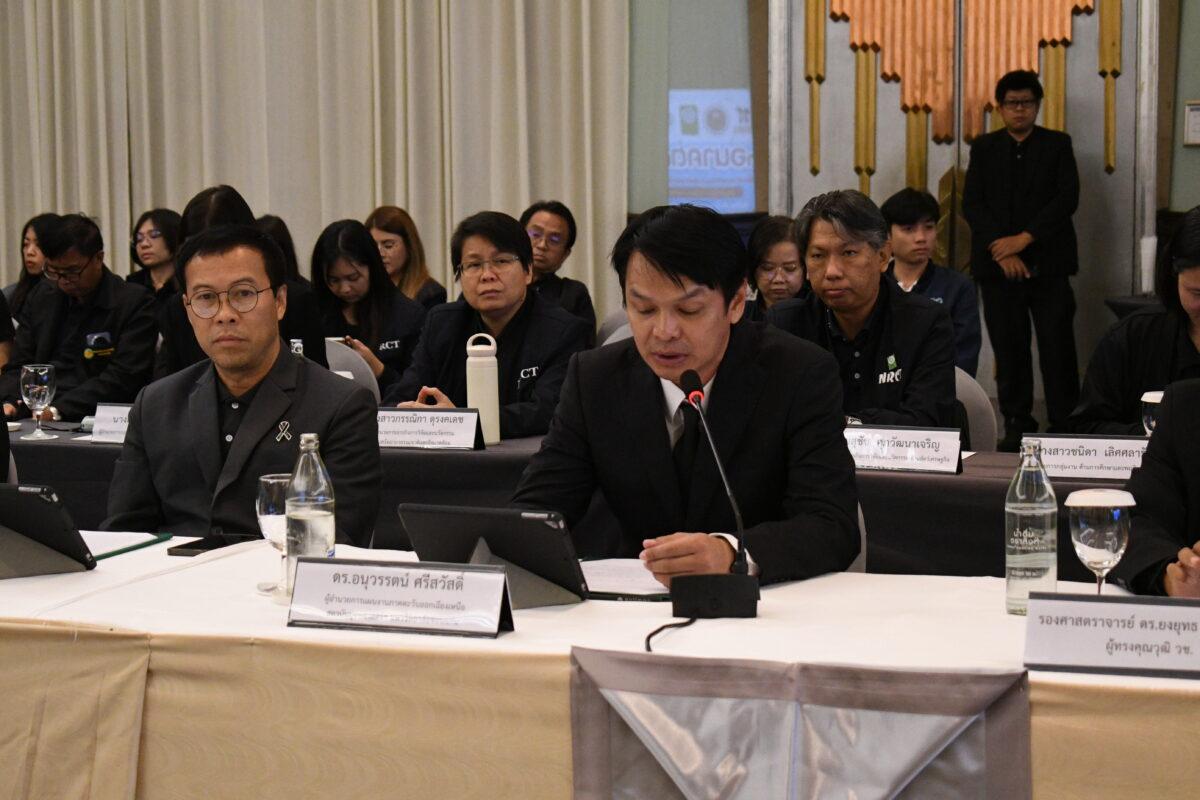
Dr. Anuwat Srisawasdi, Director of the Northeast Strategy Program at the KKU Strategic Institute, remarked, “The KKU Strategic Institute plays a pivotal role in connecting researchers and academics with local communities. We provide guidance, promote the use of technology, and introduce knowledge that is practically applicable in the areas. We are cooperating closely with the province and partner agencies, particularly the NRCT, on critical water issues to help solve drought problems and ensure farmers can maintain sustainable livelihoods.”
This project is funded by the HERI research and innovation promotion budget for the 2025 fiscal year. The initiative showcased ready-to-use research and innovation outputs for Khon Kaen and Chaiyaphum provinces and provided a platform for stakeholder engagement. The goal is to ensure that research and innovation are tangibly applied, driving positive and sustainable improvements to the quality of life for residents and local communities.

